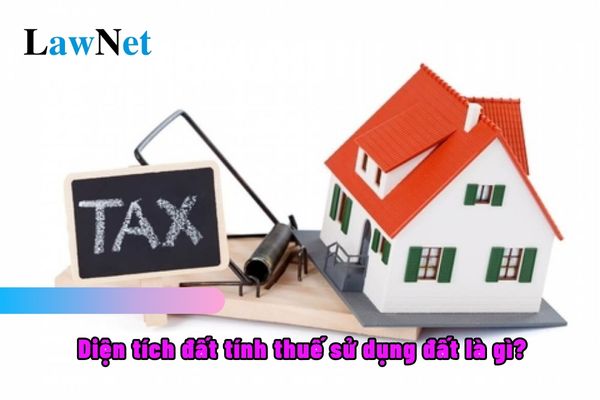What is the taxable land area for land use tax in Vietnam?
What is the taxable land area for land use tax in Vietnam?
Pursuant to Article 6 of the Law on Non-Agricultural Land Use Tax 2010, the calculation of non-agricultural land use tax is stipulated as follows:
- The taxable value of the land is determined by multiplying the taxable land area by the price per square meter of land.
- The taxable land area is stipulated as follows:
+ The taxable land area is the actual land area used.
In the case of having the right to use multiple parcels, the taxable land area is the total area of the taxable parcels.
When the State allocates or leases land for the construction of an industrial zone, the taxable land area does not include the area used for common infrastructure construction;
+ For homestead lands with multi-story, multi-family dwellings, and apartment buildings, including cases used both for living and business, the taxable land area is determined by a distribution coefficient multiplied by the area of the building used by each organization, household, or individual.
The distribution coefficient is determined by dividing the area of land used for multi-story, multi-family dwellings, and apartment buildings by the total area of the buildings used by organizations, households, or individuals.
In cases where multi-story, multi-family dwellings and apartment buildings have a basement, 50% of the basement area used by organizations, households, or individuals in the basement is added to the building area used by those entities for calculating the distribution coefficient;
+ For constructions built underground, a distribution coefficient of 0.5 times the area of the land used for construction divided by the total area of the construction used by organizations, households, or individuals is applied.
- The price per square meter of land is the land price according to the land price list corresponding to the purpose of use and is fixed over a 5-year cycle.
Thus, it can be seen that the taxable land area for land use tax is the actual land area used.

What is the taxable land area for land use tax in Vietnam? (Image from the Internet)
What are 7 types of non-agricultural land used for purposes other than commercial ones that are not liable to tax in Vietnam?
According to Article 3 of the Law on Non-Agricultural Land Use Tax 2010, the 7 types of non-agricultural land used for purposes other than commercial ones not subject to tax include:
[1] Land used for public purposes including: transportation, irrigation; land for the construction of cultural, medical, educational, training, and sports facilities serving public interests; land with historical-cultural relics, scenic spots; land for the construction of other public works as prescribed by the Government of Vietnam;
[2] Land used by religious establishments;
[3] Land used for cemeteries and graveyards;
[4] River, canal, ditch, stream land, and specialized water surface;
[5] Land with structures such as communal houses, temples, shrines, ancestral halls, clan houses;
[6] Land for building office headquarters, public work constructions, land used for national defense and security purposes;
[7] Other non-agricultural land as prescribed by law.
Which entities are the taxpayers for non-agricultural land use tax in Vietnam?
According to Article 4 of the Law on Non-Agricultural Land Use Tax 2010, the taxpayers for non-agricultural land use tax include:
- Taxpayers are organizations, households, and individuals who have land use rights subject to tax as stipulated in Article 2 of the Law on Non-Agricultural Land Use Tax 2010.
- In cases where organizations, households, or individuals have not yet been issued a Certificate of Land Use Rights, ownership of residential houses, and other assets attached to the land (hereinafter referred to as the Certificate), the person using the land shall be the taxpayer.
- Specific cases of taxpayers are stipulated as follows:
+ In cases where the State leases land for investment projects, the homestead land lessee is the taxpayer;
+ In cases where the person with land use rights rents out land under a contract, the taxpayer is determined according to the agreement in the contract. If the contract does not specify the taxpayer, the person with land use rights is the taxpayer;
+ In cases where the land has been granted a Certificate but is under dispute, until the dispute is resolved, the person using the land shall be the taxpayer. Tax payment is not a basis for resolving disputes over land use rights;
+ When multiple individuals have joint land use rights for a parcel, the taxpayer is the legal representative of those having the joint land use rights;
+ In cases where the person with land use rights contributes land use rights as capital to form a new legal entity, which then holds land use rights subject to tax as stipulated in Article 2 of the Law on Non-Agricultural Land Use Tax 2010, the new legal entity shall be the taxpayer.

